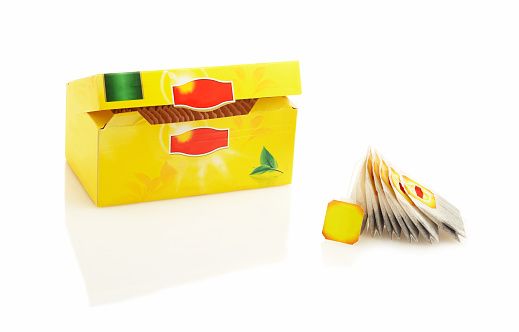Nothing beats a warm cup of tea on a cold morning or in the middle of a dull day. Tea is considered harmless and natural, so what could go wrong?
Made from the leaf buds of the camellia sinensis plant, the Lipton Yellow Label is the only brand we considered "real tea" while growing up, way before other variants like green tea became popular in Nigeria.
That is when we were not busy calling every random cocoa powder and milk drink "tea". The Lipton Yellow label has a strong smell and taste and impressive health benefits.
The nutritional content of lipton yellow label tea
The Lipton Yellow label contains few calories, strengthening the immune system and reducing blood pressure. However, it contains the most significant amount of caffeine per ounce among all the variants of Lipton tea.
Here is the amount of caffeine per 8 ounces of different flavours of Lipton.
Lipton tea Caffeine per 8 ounces
Yellow label 63mg
Black 55mg
Iced black 40mg
Decaf black <5mg
Green tea 28-38 mg
And this is the complete nutritional value of the Lipton yellow label per 200ml.
Calories 2kcal
Carbohydrates 0.2g
Protein 0.2g
Sodium 35mg
Effect of caffeine on pregnancy
For the average person, the snag of caffeine can be brushed away. But pregnant women do not have such luxury.
Caffeine intake can have adverse effects on you and your baby. Coffee, tea, and other beverages have been linked with low birth weight, restricted fetal blood flow, and increased infant breathing rate.
Researchers identified links between higher maternal caffeine consumption and shorter height in a study of 2400 pregnant women. And among 788 children in an E.C.H.O study, those born to women who consumed the most significant amount of caffeine were 1.5cm shorter than those whose mothers had the lowest caffeine intake.
How high is too high with caffeine
The amount of caffeine the NHS recommends daily during pregnancy is 200 mg daily.
Effects of Lipton on Pregnancy
Drinking Lipton tea with a reduced amount of caffeine still has its risks. "Lipton tea contains caffeine which in moderate amounts have been shown in studies to lead to low birth weight babies or those small for their gestational age," says Hannah Whittaker, Expert Pediatric and Pregnancy dietician, Liverpool, England.
Besides the caffeine in the Lipton yellow label, this tea has little nutritional value to pregnant women. So there are no nutrients you are missing from avoiding this beverage for a while.
Some other effects of drinking tea such as Lipton while pregnant, even in small amounts, include:
- Decreased babies' length.
- Decreased head circumference.
- Shortened gestational age.
- Childhood obesity.
- Nausea.
- Poor sleep.
- Headache and dizziness.
- It stimulates menstrual bleeding.
Can Lipton tea cause miscarriage?
Lipton Yellow Label can cause miscarriage and poor brain development when taken in excess while pregnant.
A study found that even 200mg of caffeine appeared to raise the risk of miscarriages by 28%.
The general advice by experts is to take a small number of caffeine products. At most, 2-3 cups of tea daily while pregnant. Some doctors argue that avoiding tea or coffee is best during pregnancy.
Is it safe for a pregnant woman?
This is still a widely debated topic in medical society. Some researchers believe that moderate or minor consumption is okay, but many studies have shown that it is best to avoid it altogether.
Our opinion? Nine months is not such a long time to avoid a beverage for your baby's health. Other nutritious drinks like smoothies, milk, fresh juice, and especially water can give you the required nutrients while pregnant.
If you have any questions, remember to discuss them with your doctor at your next antenatal appointment.
StayPreggySafe!










Comments